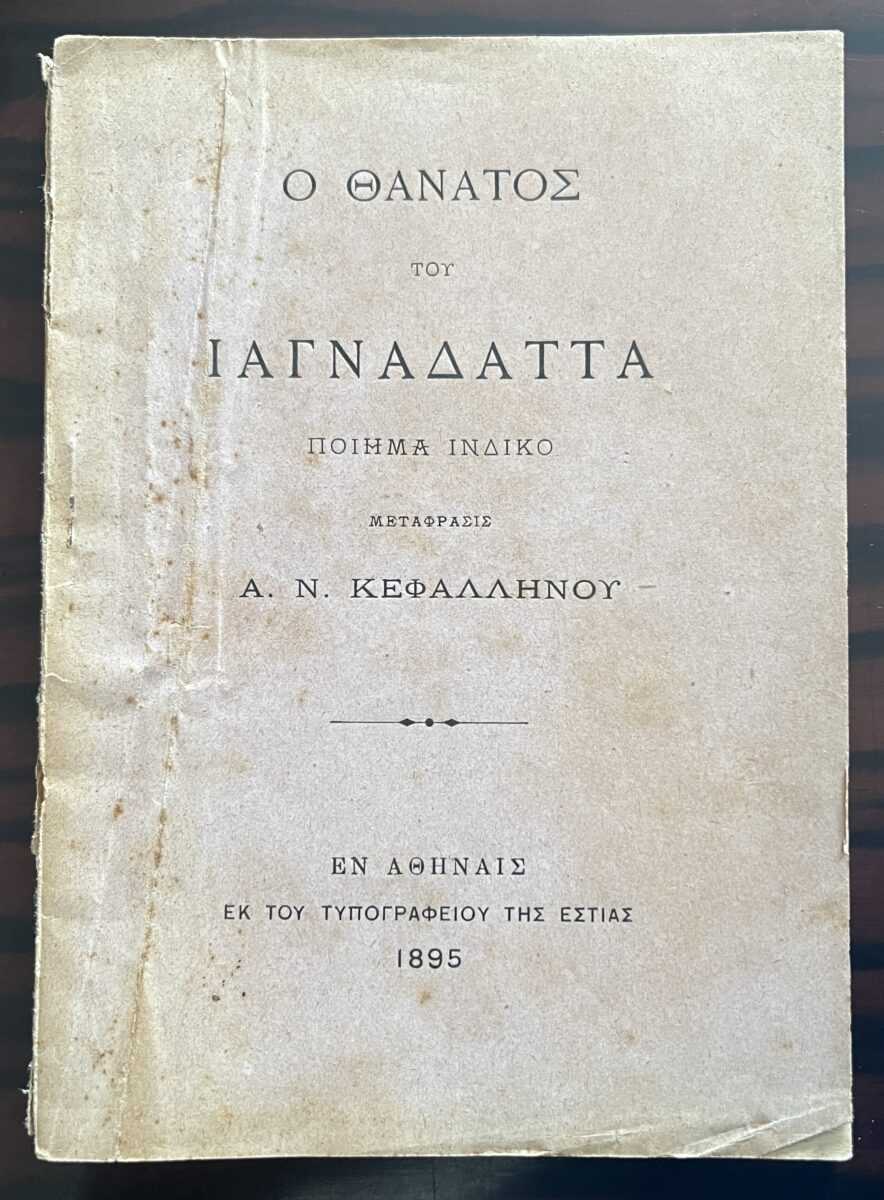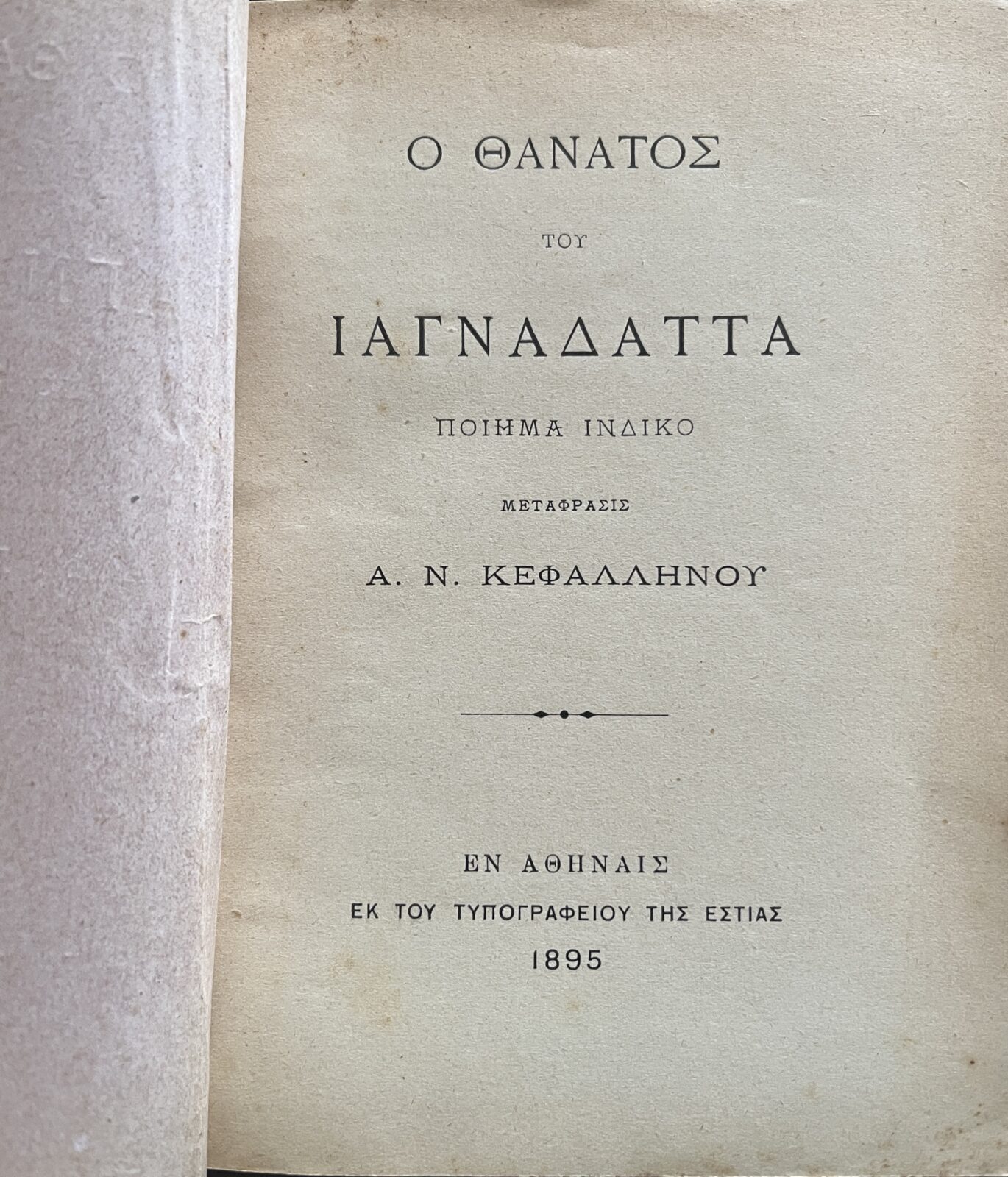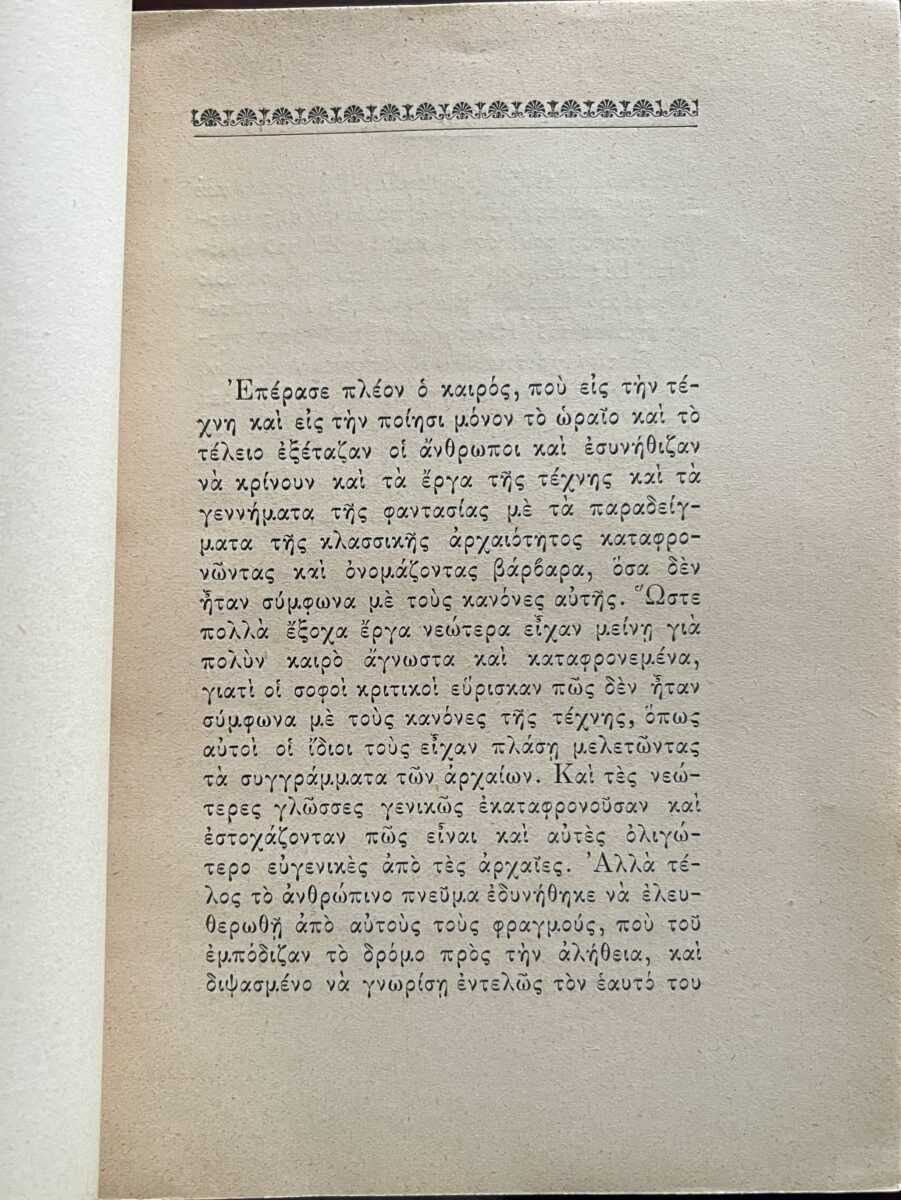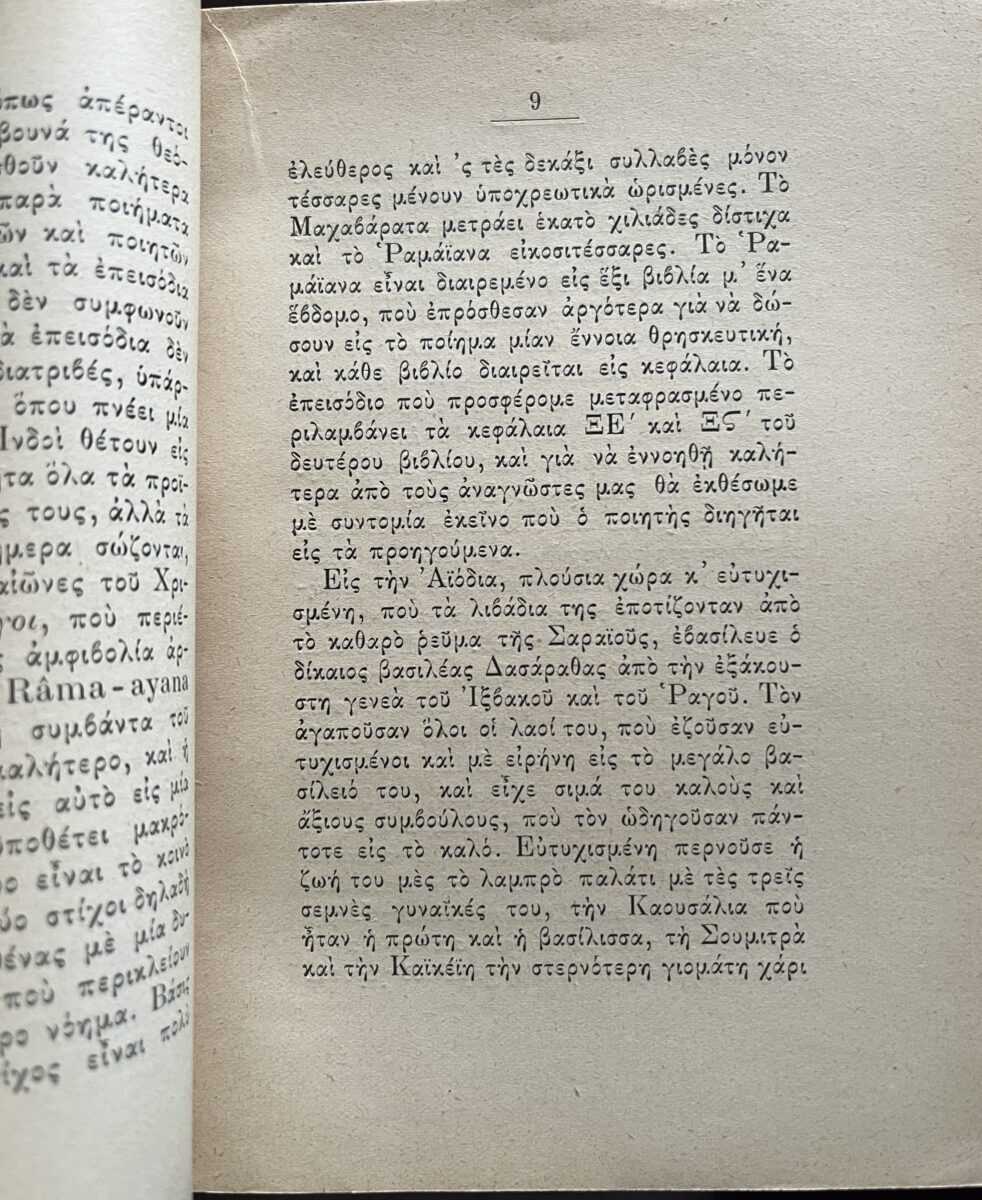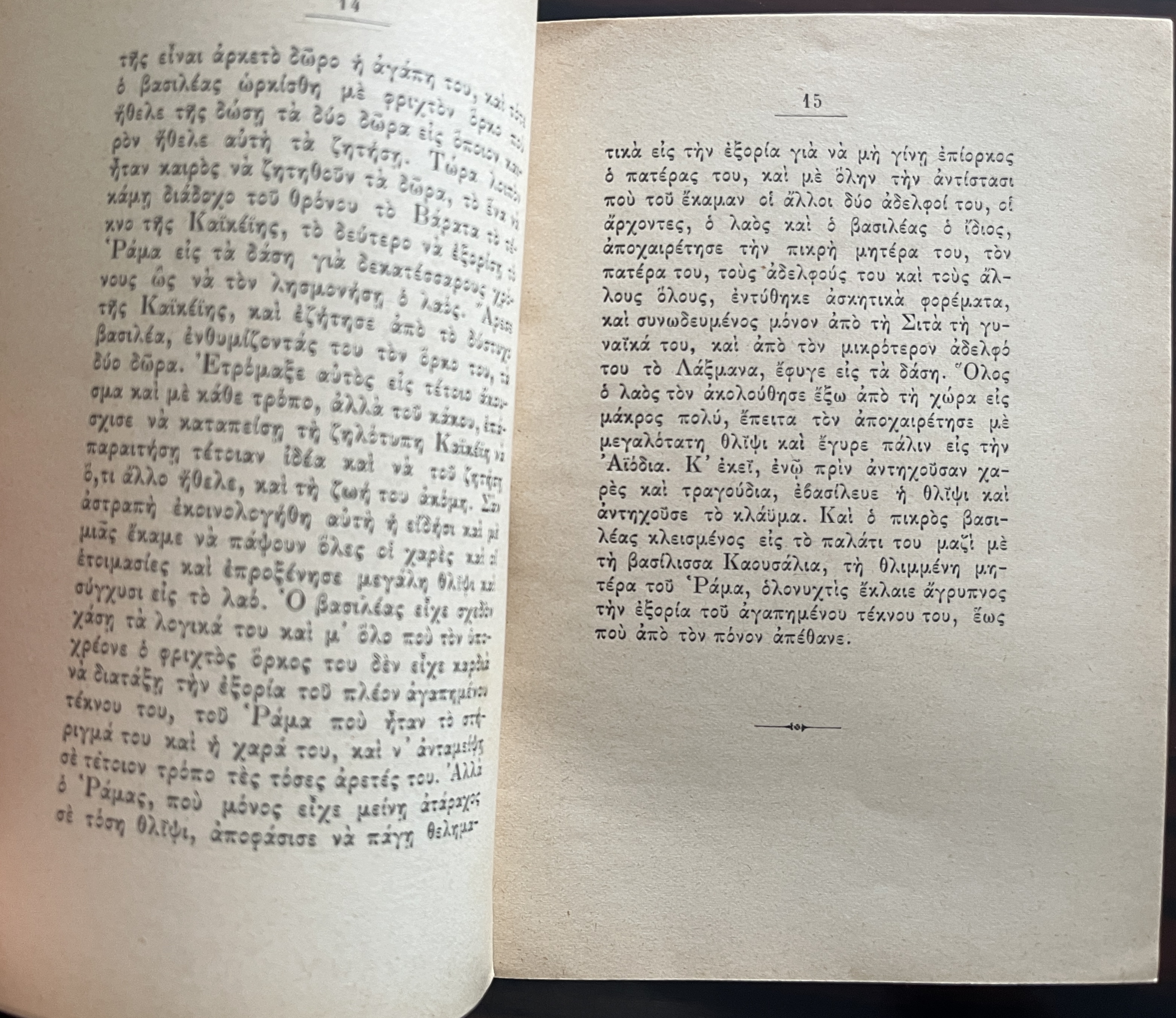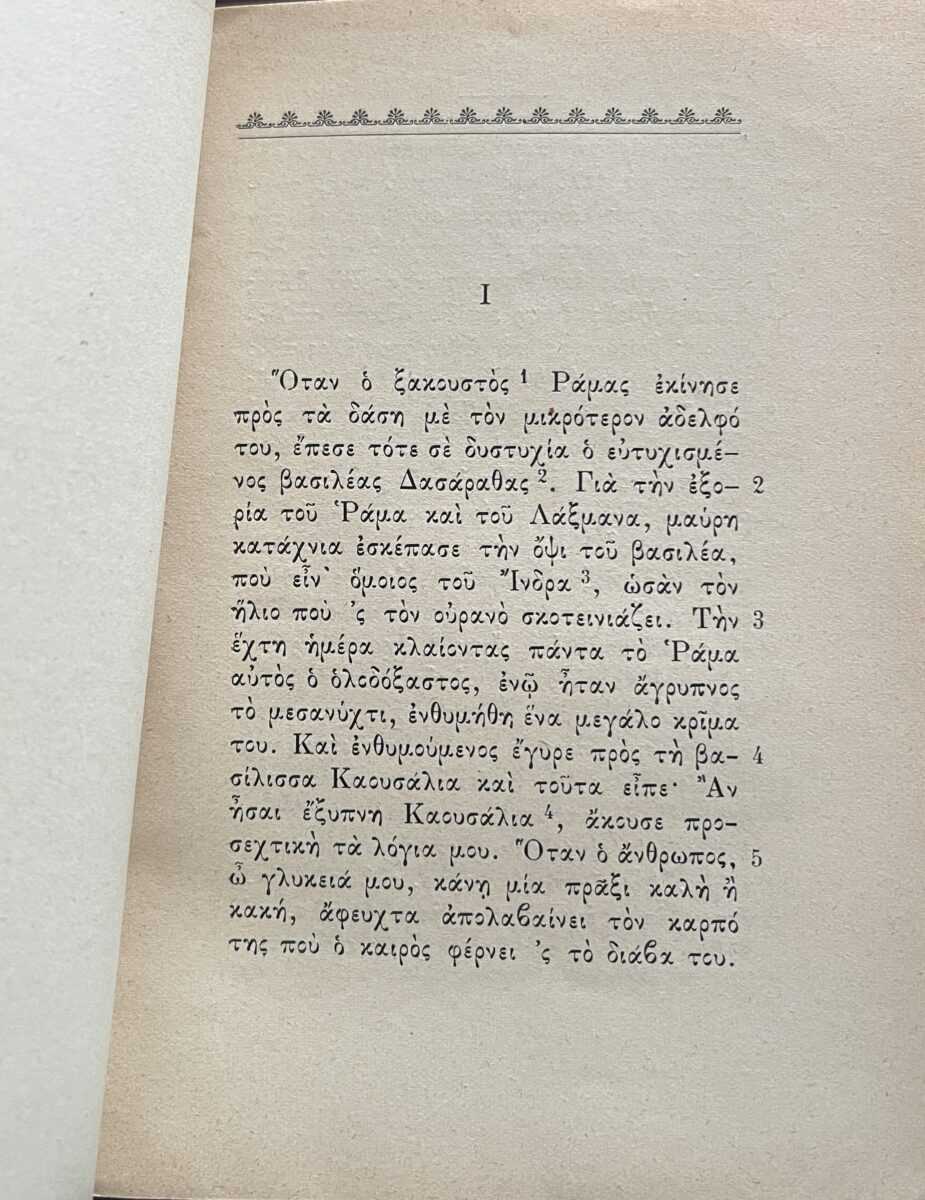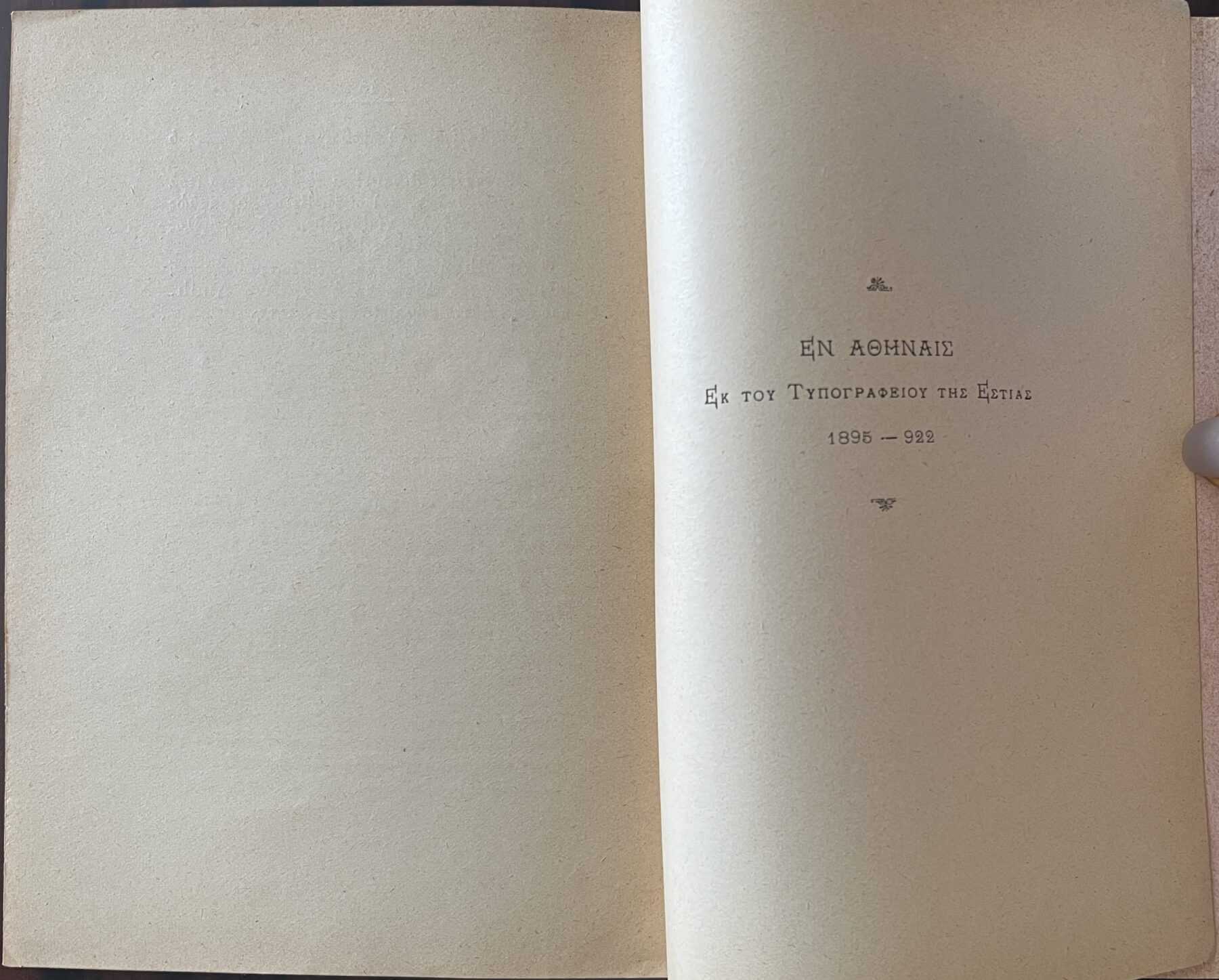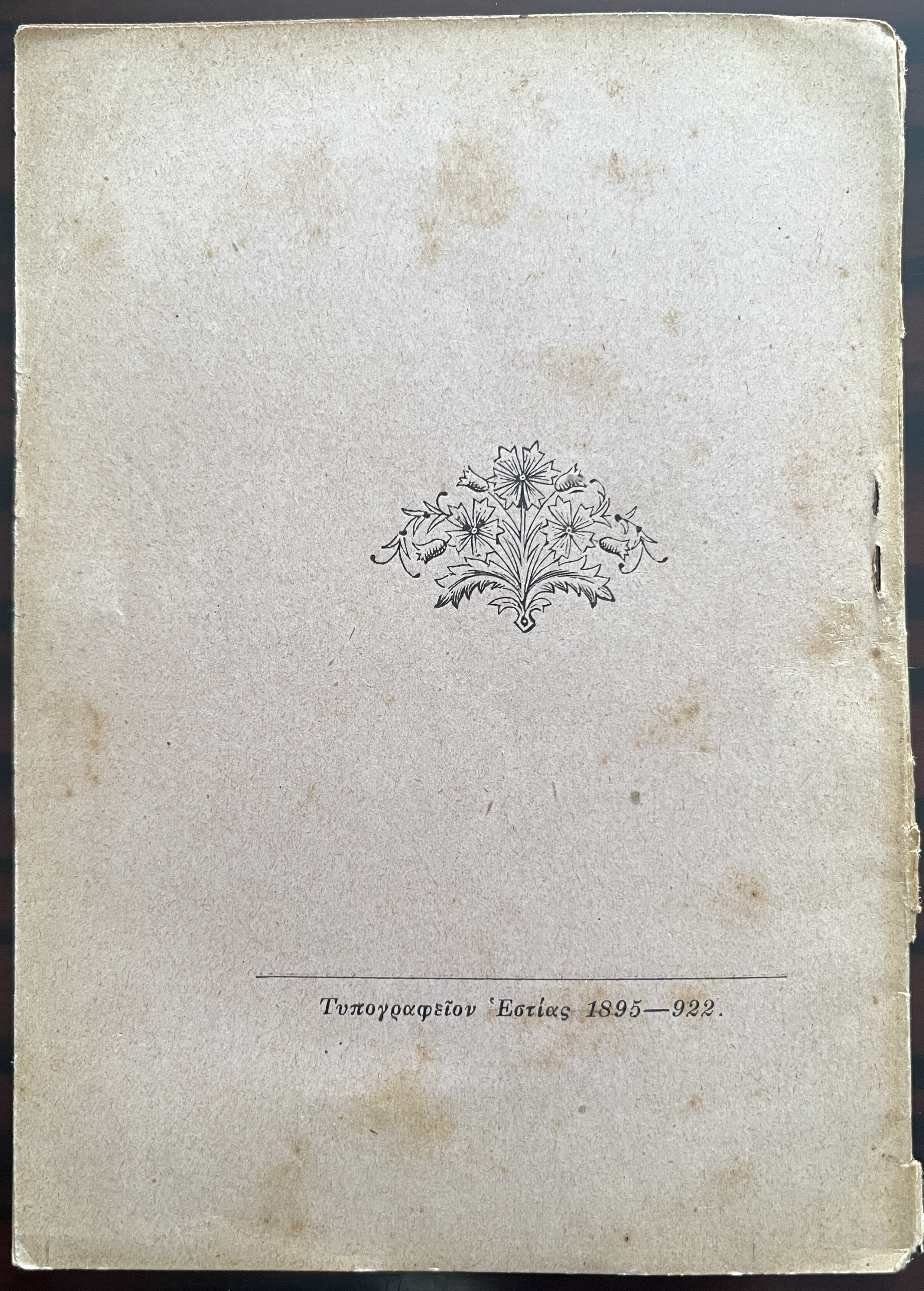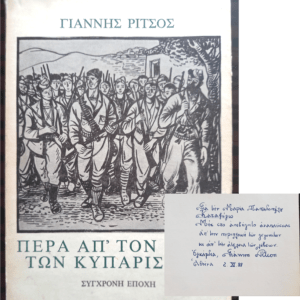Rare, 1895, Andreas Kefallinos, Greek Book, Indian Poem, Ramayana, Yajñadatta
75.00€
Description
Ο ΘΑΝΑΤΟΣ
ΤΟΥ
ΙΑΓΝΑΔΑΤΤΑ
Ποίημα Ινδικό
Μετάφρασις
Α. Ν. Κεφαλληνού
The Death of Yajñadatta
Indian Poem
Translated by
A. N. Kefallinos
Published by Estia in Athens in 1895
Original Paper Binding
45 Pages
10.5 cm x 15 cm
Andreas N. Kefallinos (1856-1943) was born in Corfu. There he attended and completed his basic education at the city’s gymnasium. He studied Indian philology in Munich and Florence, where he became a doctor of philosophy. In addition to his educational and political career, he was also involved in literature. He translated Gessler’s Idylls and the episodes Oinamorul and Oithona of Ossian into Greek. He also translated chapters from the Indian epic Ramayana. One of his most important theses was entitled The Greek Hetaerae in the Indian Drama, where he referred to the influence of Greek culture in India.
About the book: The poem explores the remorse and anguish of King Dasaratha after banishing his son Rama. The king’s despair is palpable as he reflects on his past actions and the consequences they have brought upon him. The poem is a powerful portrayal of human frailty and the inevitability of fate. Dasaratha’s rash vow and subsequent actions have led to the exile of Rama, and the king is now reaping the bitter fruits of his own doing. In The Death of Yajñadatta a hermit boy serves as a model of filial piety and as an example of the working of karma. He carried his aged and blind parents, who were ascetics, from place to place on a pole slung over his shoulder. One day, when the young King Dasaratha was out hunting he saw the boys’ arm as he was reaching to get water for his parents, mistook him for an elephant, and shot him dead. The blind father cursed Dasaratha, as a result of which the entire story of the Ramayana occurred.
Additional information
| Languages | Greek |
|---|

